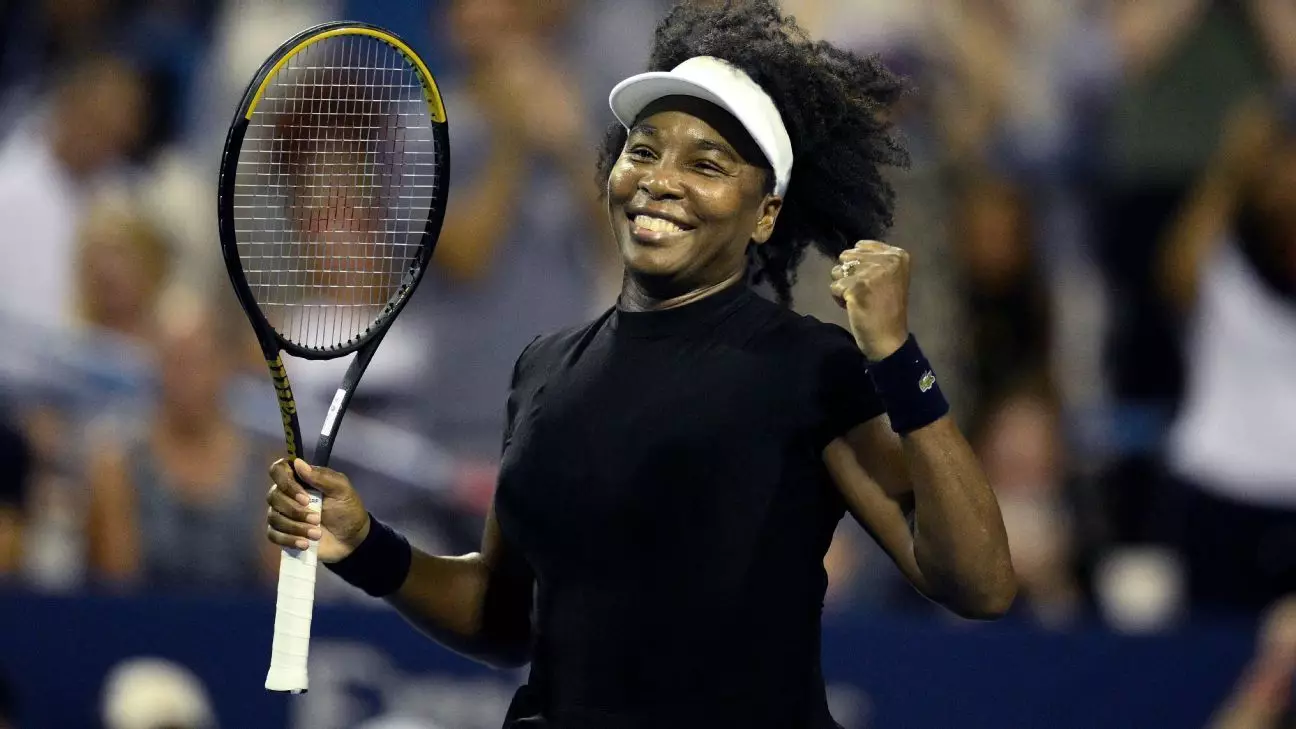Venus Williams’s recent victory at the DC Open isn’t just a statistical milestone; it’s a powerful statement about resilience and determination in the face of relentless ageism and skepticism within the sport. At 45, most athletes have long since faded into the backdrop of competitive tennis, yet Williams defied the conventional narrative, reminding us that tenacity can still triumph over the inevitable march of time. Her win was not a mere anomaly but a defiant act that challenges the stereotypical decline associated with aging, serving as inspiration for countless individuals who believe their best days are behind them.
This remarkable triumph signals more than a personal comeback; it underscores the importance of perseverance in an industry often obsessed with youth and rapid results. Williams’s journey back to singles competition — after nearly two years of inactivity and recovering from significant health issues — exemplifies the kind of unwavering grit that often gets overshadowed by flashy headlines and fleeting victories. Her ability to return and win, even in a less-than-ideal form, reflects a deeper truth about human resilience: it is not about always being at your peak but refusing to give up when the odds are stacked high against you.
Challenging the Ageist Narrative in Tennis
The sport of tennis is notorious for its ageist tendencies, glorifying young talents while marginalizing those who continue to perform past their prime. Williams’s resurgence is a potent counter-narrative to this damaging trope. As the second-oldest woman to ever claim a victory at the tour level, her achievement directly confronts the misconception that peak performance is a solely youth-centric phenomenon. Such stories should be celebrated as milestones that expand the definition of what it means to be a successful athlete.
In a broader societal context, Williams’s comeback challenges ageism not just in professional sports but also in the workplace and social spheres. Her story resonates for those who feel sidelined just because they are no longer in the “youthful prime.” It underscores the importance of valuing experience, perseverance, and adaptability—traits often overlooked when society tends to prioritize instant gratification and superficial measures of success. For those engaged in ongoing endeavors, her victory is a reminder that age, coupled with resilience, can be a source of strength rather than weakness.
The Power of Legacy and Representation
Venus Williams’s enduring presence in the sport is about more than personal achievement; it’s about legacy and representation. Her career, marked by seven Grand Slam singles titles and numerous doubles victories alongside Serena, has already cemented her status as a trailblazer. But her recent performance breathes new life into her legacy, demonstrating that influence transcends age and recent competition results.
This moment isn’t purely about individual accomplishment—it’s about reshaping perceptions. Williams’s persistence empowers underrepresented groups, especially women and older athletes, to challenge societal norms that equate age with obsolescence. Her willingness to fight for every point on the court reflects a broader ideological stance: that resilience is an act of rebellion against societal expectations, and that anyone willing to invest in themselves can rewrite their narrative at any stage of life.
Her presence on the court also acts as a vital symbol of progress—a reminder that the fight for equality and recognition in sports, and beyond, is ongoing. Williams’s victory encourages a more inclusive view of athleticism, one that values durability, experience, and mental toughness equally with raw physical prowess. It’s this attitude that will be crucial in pushing sports and society toward a future where aging is seen as an asset, not a liability.
Breaking Barriers, Building Hope
The story of Venus Williams is a testament to the idea that resilience isn’t just about individual achievement but about inspiring a cultural shift. Her ability to compete—and win—at 45 compels institutions and society to reconsider how we view aging and excellence. It’s a reminder that perseverance, along with a commitment to health and self-belief, can defy even the most ingrained stereotypes.
While critics might dismiss her recent success as a rare exception or a nostalgic gesture to glory days, her performance underscores a deeper truth: the human spirit, when nurtured with determination and courage, can defy expectations. Williams’s comeback phenomenon serves as a beacon for those who face their own battles with aging, health, or societal stereotypes—offering hope that with resilience, even the most entrenched limitations can be challenged. This victory isn’t just about tennis; it’s about refusing to accept a world that marginalizes those who dare to continue fighting, regardless of age.


Leave a Reply